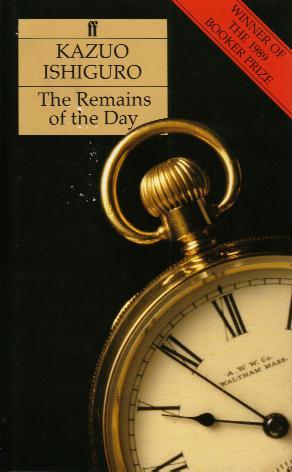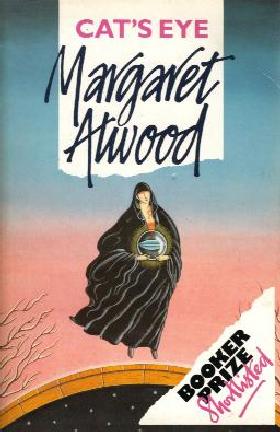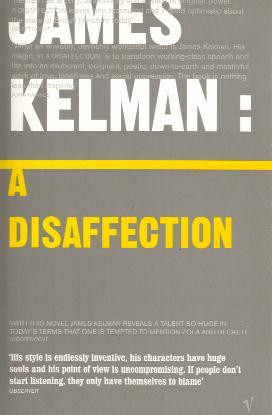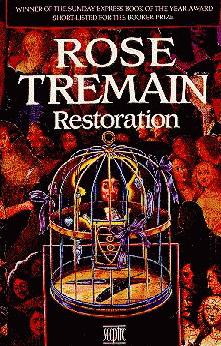
Kazuo Ishiguro
The following novels constitute the shortlist for the 1989 Booker Prize:
Notable Omissions from the 1989 Shortlist

|
The Remains of the Day Kazuo Ishiguro |
Dustjacket synopsis:
"It is the summer of 1956. Stevens, an ageing butler, has embarked on a rare holiday - a six-day
motoring trip through the West Country. But his travels are disturbed by the memories of a lifetime
in service to the late Lord Darlington, and most of all by the increasingly painful
recollection of his friendship with the housekeeper, Miss Kenton. For the first time in his
life, Stevens is forced to wonder if all his actions were for the best after all...
"The Remains of the Day is a sad and humorous love story, a moving and witty meditation on the democratic responsibilities of the ordinary man, and a poignant tale of thwarted idealism. Characterized by the grace and subtlety for which Kazuo Ishiguro's work has been acclaimed, it is his finest novel so far."
First Paragraph:
It seems increasingly likely that I really will undertake the expedition that has been
preoccupying my imagination now for some days. An expedition, I should say, which I will
undertake alone, in the comfort of Mr Farraday's Ford; an expedition which, as I foresee it,
will take me through much the finest countryside of England to the West Country, and may
keep me away from Darlington Hall for as much as five or six days. The idea of such a journey
came about, I should point out, from a most kind suggestion put to me by Mr Farraday himself
one afternoon almost a fortnight ago, when I had been dusting the portraits in the library. In
fact, as I recall, I was up on the step-ladder dusting the portrait of Viscount Wetherby when my
employer had entered carrying a few volumes which he presumably wished returned to the shelves.
On seeing my person, he took the opportunity to inform me that he had just that moment finalized
plans to return to the United States for a period of five weeks between August and September.
Having made this announcement, my employer put his volumes down on a table, seated himself
on the chaise-longue, and stretched out his legs. It was then, gazing up at me, that he
said:
'You realise, Stevens, I don't expect you to be locked up here in this house all the time I'm
away. Why don't you take the car and drive off somewhere for a few days? You look like you
could make good use of a break.'
From the Faber and Faber hardback edition, 1989.

|
Cat's Eye Margaret Atwood |
Dustjacket synopsis:
"Elaine Risley, a painter, returns to Toronto to find herself overwhelmed by her past. Memories of
childhood - unbearable betrayal and cruelties - surface relentlessly, forcing her to confront the
spectre of Cordelia, once her best friend and tormentor, who has haunted her for forty years..."
Quotes:
"Not since Graham Greene or William Golding has a novelist captured so forcefully the
relationship between school bully and victim...Atwood's power games are played, exquisitely, by
little girls" - The Listener
"Irresistible...This book is about life for all of us. She is one of our finest novelists.
Read it." - The Times
First Paragraph:
Time is not a line but a dimension, like the dimensions of space. If you can bend space you can bend time also, and if you knew enough and could move faster than light you could travel backwards in time and exist in two places at once.
It was my brother Stephen who told me that, when he wore his ravelling maroon sweater to study in and spent a lot of time standing on his head so that the blood would run down into his brain and nourish it. I didn't understand what he meant, but maybe he didn't expain it very well. He was already moving away from the imprecision of words.
From the Virago paperback edition, 1990.

|
The Book of Evidence John Banville |
Dustjacket synopsis:
"The Book of Evidence is the first-person prison testimony of Freddie Montgomery -
convicted for the ghastly and seemingly motiveless kidnap and murder of a young woman. Trying
to make sense of the crime that destroys life - and the career of the friend who unwittingly
harbours him - Freddie's monologue is also an attempt to come to terms with forty years of
aimless drifting and dissolution, and to find some glimpse of order in an apparently random
world.
"Around this grim theme, however, Banville creates an equisitely written and often hilarious novel of the highest order, peopled by both wild eccentrics and bemused innocents. The Book of Evidence is a remarkable blend of thriller, farce and dramatic tragedy that stands out, quite clearly, as a work of genius."
First Paragraph:
My Lord, when you ask me to tell the court in my own words, this is what I shall say. I am kept locked up here like some exotic animal, last survivor of a species they had thought extinct. They should let in people to view me, the girl-eater, svelte and dangerous, padding to and fro in my cage, terrible green glance flickering past the bars, give them something to dream about, tucked up cosy in their beds of a night. After my capture they clawed at each other to get a look at me. They would have paid money for the privilege, I believe. They shouted abuse, and shook their fists at me, showing their teeth. It was unreal, somehow, frightening yet comic, the sight of them there, milling on the pavement like film extras, young men in cheap raincoats, and women with shopping bags, and one or two silent, grizzled characters who stood, fixed on me hungrily, haggard with envy. Then a guard threw a blanket over my head and bundled me into a squad car. I laughed. There was something irresistibly funny in the way reality, banal as ever, was fulfilling my worst fantasies.
From the Seeker & Warburg hardback edition, 1989.

|
Jigsaw - An Unsentimental Education Sybille Bedford |
Quotes:
"This is a wonderfully absorbing book. The events described are so astonishing that it would perhaps be
asking too much that they be merely imagined; Sybille Bedford's childhood is beyond fictive invention...considerably
moving...it seems inevitable and absolutely real" - Penny Perrick, Sunday Times
"Of all the women writers this century, Sybille Bedord is, to my mind, the finest.
It is not only because of her elegant, literary style, but also because of her choice of subject and the
way she uses wholly or partly autobiographical material to such extraordinary effect in a novel " -
Julia Neuberger, Evening Standard
"Sybille Bedford's evocation of the South of France in the 1920s offers a celebration
of affordable pleasures and painterly descriptions written under the great spell of Mediterranean
life. Jigsaw is not really a novel, though some of it is fiction, more an exquisite
excerise in memory in which the auhtor's itinerant childhood is recalled" - Chris Petit, The Times
"Fascinating...it is plain that this work is far nearer to a true story than its predecessors, while
displaying all the desired qualities of the finest fiction: bold imagination, narrative suspense, high comedy and
disturbing pathos...of absorbing interest from start to finish" - Francis Wyndham, Daily Telegraph
"Jigsaw may turn out to be the most unusual, the most resonant of all Sybille Bedford's unusual and
resonant books...at its core is the young and old Sybille Bedford, the two often indistinguishable, exerting
her pagan authority" - Paul Bailey, Sunday Times
First Paragraph:
A first coherent memory is being wheeled through leafy streets in a pram that felt too small for me (I was well able to walk). I knew it was Copenhagen. I must have been over two years old. Presently I was in some kind of a narrow space and my mother wearing an enormous hat and veil was bending over me for it was she who, quite exceptionally, had wheeled the pram. Please be good, please keep quiet, he hates to have a baby in the hall. Please just go to sleep. I did. For the whole blessed afternoon. Elucidation came later, yaers later, but the actual sequence - the streets, the pram, the narrow space, the urgency in my mother's voice: an appeal to reason and accompliceship, my instant fall into oblivion - is a first-hand memory. The narrow space was the hall of a man's flat. He was a Danish novelist, a bachelor nearer fifty than forty, fastifious, feted. We - my mother, nanny, I - were staying at an hotel. It was nanny's afternoon off. My mother did not know what to do with me. 'You couldn't be left alone, you were very active. I couldn't trust the chambermaid, she might have told nanny. Nanny wasn't supposed to know. Nobody was to know. So I popped you into that pram and took you to Peter's. Yes, I took a chance. But you were angelic."
From the Penguin paperback edition, 1990.

|
A Disaffection James Kelman |
Dustjacket synopsis:
"Patrick Doyle is a 29-year-old teacher in an ordinary comprehensive school. Disaffected, frustrated and increasingly
bitter at the system he is employed to maintain, he begins his rebellion, fuelled by drink and his passionate, unrequited
love for a fellow teacher."
Quotes:
"His style is endlessly inventive, his charcaters have huge souls and his point of view is uncompromising. If
people don't start listening, they only have themselves to blame" - Observer
"Kelman has artistry, authenticity and a voice of singular power. A Disaffection leaves one reassured and
indeed optimistic about the state of British literature today" - Independent
"What an enviably, devilishly wonder writer is James Kelman. His magic, in A Disaffection, is to transform
working-class speech and life into an exurbant, poignant, poetic, down-to-earth and masterful work of love, loneliness
and social oppression. The book is nothing less than inspiring" - John Hawkes
First Paragraph:
Patrick Doyle was a teacher. Gradually he had become sickened by it. Then a very odd thing happened or was made to happen. He had been visiting the local arts centre and having a couple of drinks, found himself round the back of the premises for a pish, and discovered a pair of old pipes. They were longish and reminded him of english saxophones from a bygone era, that kind that reach to the floor and are normally performed on by seated musicians. Now by no means whatsoever would Patrick have considered himself a musician - if anything his secret hankering was to be a painter, doing fairly large murals. He could imagine covering the gable ends of tenement buidling, or even better, the interior walls of tenement closes, inserting various nooks and crannies and twists and corners; evil shapes and sinister figures - different things: but always inclining toward Goya's work of the black period.
From the Vintage paperback edition, 1999.

|
Restoration Rose Tremain |
Dustjacket synopsis:
"Robert Merivel abandons his medical studies to revel in gluttony, indolence and buffoonery
at the Court of King Charles II. Finding favour with the King, he serves as 'paper groom' to
the youngest royal mistress in exchange for an estate and knighthood. But by falling in love
with her himself he violates the rules and is banished from Court. Merivel's enforced
purgatory leads to work in a Quaker Bedlam and a yet more painful fall from grace before he
can achieve spiritual and social restoration.
"Rose Tremain's award-winning novel is a masterful blend of history and imagination. Rich, humorous and exuberant, but with a dark undercurrent, Restoration's portrait of a past era suggests telling parallels with the present."
Quotes:
"Daring and sensuous" - Maggie Gee, The Observer
"Robert Merivel is her best creation...quite marvellous, a literary and psychological
triumph...the book is a tour de force" - Carole Angier, New Statesman and Society
"Comic and profound, subtle and bawdy, utterly relevant to the present and a masterly portrait of that
complex creature, man. It's a joy to read" - Anne Smith, The Listener
First Paragraph:
I am, I discover, a very untidy man.
Look at me. Without my periwig, I am an affront to neatness. My hair (what is left of it) is the colour of sand and wiry as hogs' bristles; my ears are of uneven size; my forehead is splattered with freckles; my nose, which of course my wig can't conceal, however low I wear it, is unceremoniously flat, as if I had been hit at birth.
Was I hit at birth? I do not believe so, as my parents were gentle and kindly people, but I will never know. They dies in a fire in 1662. My father had a nose like a Roman emporer. This straight, fierce nose would neaten up my face, but alas, I don't possess it. Perhaps I am not my father's child? I am erratic, immoderate, greedy, boastful and sad. Perhaps I am the son of Amos Treefeller, the old man who made head-moulds for my father's millinery work? Like him, I am fond of the feel of objects made of polished wood. My telescope, for instance. For I admit, I find greater order restored to my brain from the placing of my hands round this instrument of science that from what its lenses reveal to my eye. The stars are too numerous and too distant to restore to me anything but a terror at my own insignificance.
From the Sceptre paperback edition, 1990.
Notable Omissions from the Shortlist:
"London Fields", Martin Amis
"A History of the World in 10½ Chapters", Julian Barnes
"The Chymical Wedding", Lindsay Clark
"Fludd", Hilary Mantel
"The War Zone", Alexander Stuart
This page and its contents are copyright © 2002-06 by Perry Middlemiss, Melbourne, Victoria, Australia.
Last modified: August 16, 2006.